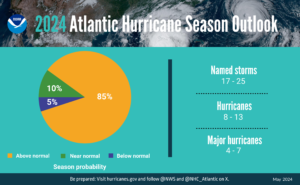Editor’s note: This is a recurring post, regularly updated with the latest information.
Understanding the complexities of stopovers and open jaws on award tickets can be overwhelming, but they can be a great way to visit two or more destinations for the price of one.
Some airline programs have lenient routing rules that you can leverage to create a tour of Europe or Asia — and sometimes even a mini-round-the-world itinerary. Here, we’ll explore the stopover and open-jaw rules of some of the most popular airlines to help you make the most informed decision on how to transfer your credit card points and subsequently maximize your rewards.
What are stopovers and open jaws?
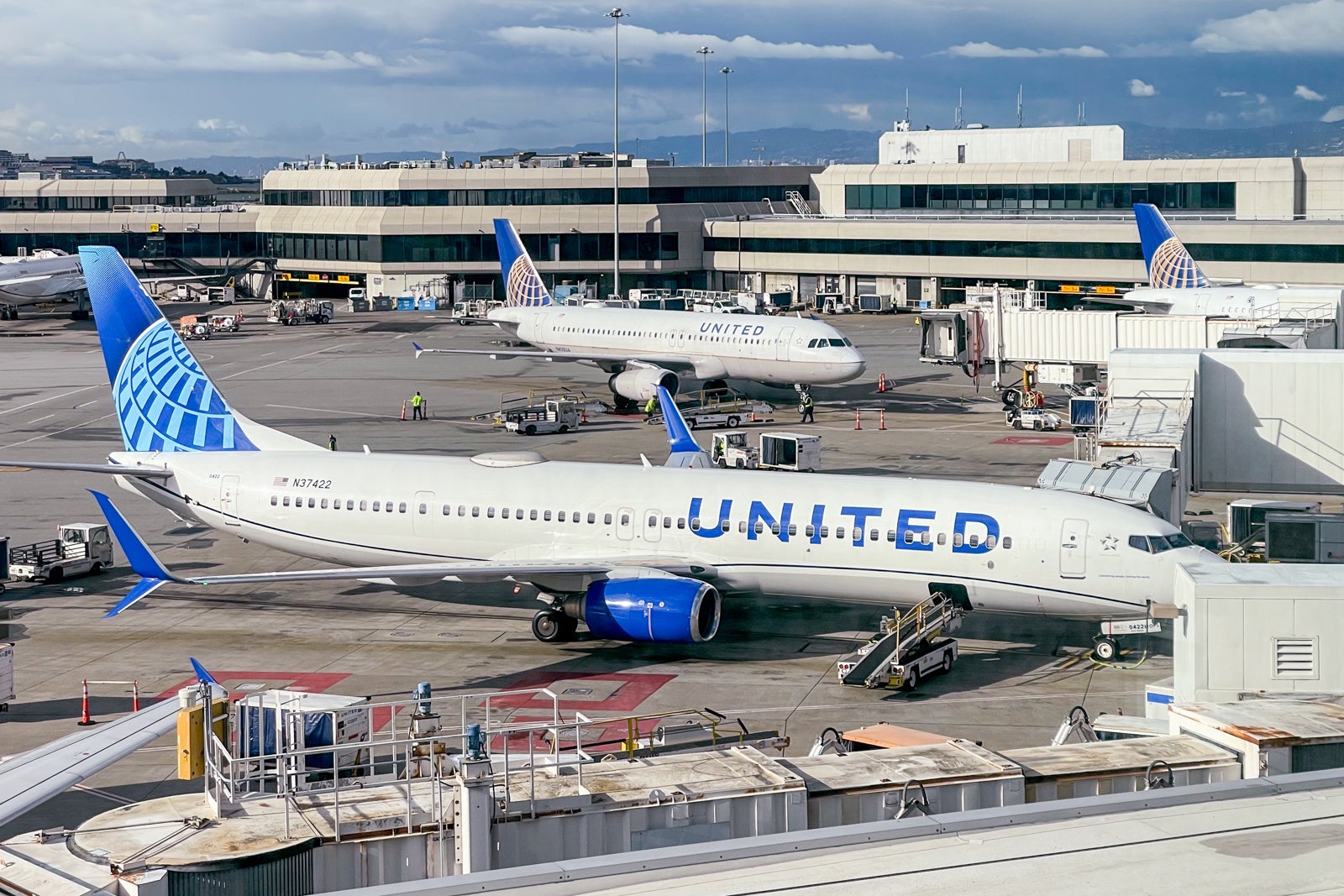
A stopover is a long stop in a city en route to your final destination, during which you leave the airport. That differs from a layover, which is generally a short connection of under 24 hours during which you normally stay in the airport. The definition of a stopover versus a layover can vary depending on the route, but for international award tickets, it’s usually any connection lasting at least 24 hours.
Meanwhile, an open jaw means flying into one city and then departing out of another to fly home. For example, if you want to fly from Orlando International Airport (MCO) to Dublin Airport (DUB) and then return from Paris-Charles de Gaulle Airport (CDG) to Orlando, that is an open jaw. Double open jaws are where you fly into one city and out of another in both directions. The above example would become a double open jaw if you were to fly from Paris to Miami rather than Orlando.
You could book each leg as a separate one-way ticket, which may incur extra fees if you change your plans. In almost all open jaws, you’re responsible for transportation between arrival and departure airports (Dublin and Paris in the above example). You could buy a one-way ticket on a low-cost airline or use a different mode of transportation, like a train or bus, to fill the open jaw.
Travelers book stopovers and open-jaw tickets for all sorts of reasons. Stopovers allow you to break up long journeys and visit an additional city on the way to your destination. Open jaws allow you to cover more ground without backtracking, perhaps if you plan to visit Europe from north to south. Limited award availability can mean that being “open” to the idea of an open jaw allows you to secure a great premium award seat that may not have otherwise been available to you.
Related: What are stopovers and open jaws on award tickets?
Can’t you create open jaws with multiple one-way tickets?
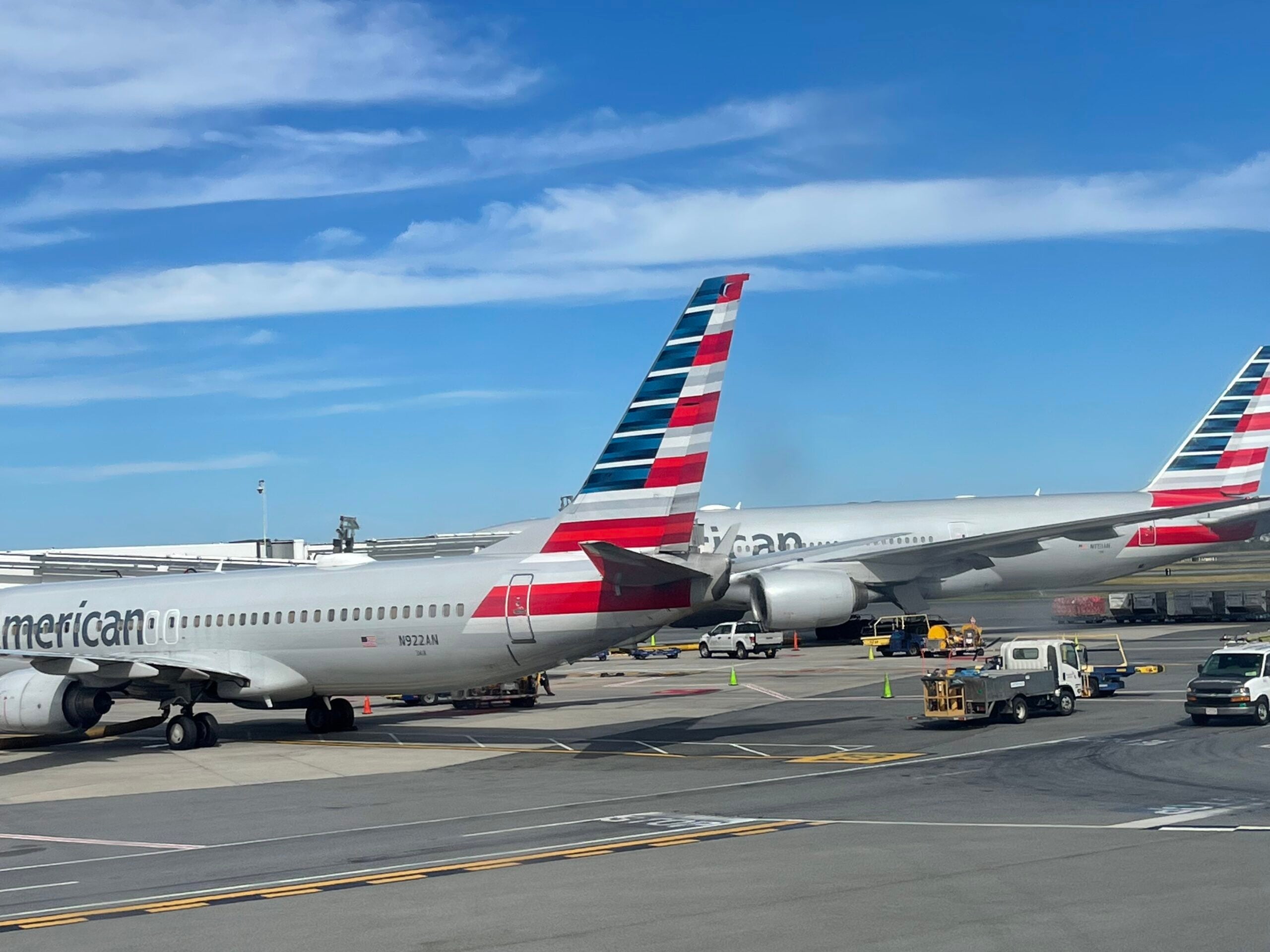
Generally, yes. Most airline programs allow you to book one-way awards. You can create your own open jaw if your desired airline does not allow open jaws. Using the previous example would mean booking a one-way ticket from Orlando to Dublin and then another one-way ticket from Paris to Orlando.
But here are some reasons you might not want to do that.
You could be turning down a ‘free’ flight
As you’ll see, some programs allow stopovers, enabling you to use a city as a stopover before continuing to your destination.
So you could use Dublin as a multiday stopover before continuing to Paris. The flight from Dublin to Paris could be available for little to no extra points. One example is the United MileagePlus excursionist perk: The interregional flight on most long-haul round-trip or multicity itineraries costs no extra miles, so you’d only need to pay the taxes and fees from Dublin to Paris.
Changes can get messy
Although the major U.S. airlines no longer charge redeposit and change fees on most award tickets, having two one-way tickets often means double the fees and double the headache when changes occur.
Some programs are also known for long hold times, so more effort will be required if you have a ticket booked with two programs.
Related: Understanding the differences between Virgin Atlantic’s 3 economy fare types
You may pay more in surcharges
Some carriers add on surcharges when you begin your trip in certain regions. For example, Delta SkyMiles generally adds a “carrier-imposed international surcharge” when you start an award itinerary in Europe. On a round-trip, economy-class ticket from New York City’s John F. Kennedy International Airport (JFK) to Brussels Airport (BRU), you’ll need to pay just $66 in taxes and fees (plus the required number of miles).
However, booking a one-way ticket that starts in Brussels adds a carrier-imposed surcharge of $138 per person.


An infant-in-arms could be a lot more expensive
If you’re traveling with an infant-in-arms (also known as a lap child), some carriers require you to pay 10% of the adult fare on international flights. One-way tickets, especially from Europe to North America, are often exorbitantly expensive, so booking a ticket as a round-trip or multicity could save you money when it comes to this fee.
Related: 25 airlines that allow families to pool miles
The best programs for stopovers and open jaws
The U.S. legacy carriers once offered generous routing rules for award tickets, but that’s no longer true. Remember that airlines can modify their award routing rules without warning.
Here’s a list of the best programs for stopovers and open jaws in your next creative redemption.
Air Canada Aeroplan
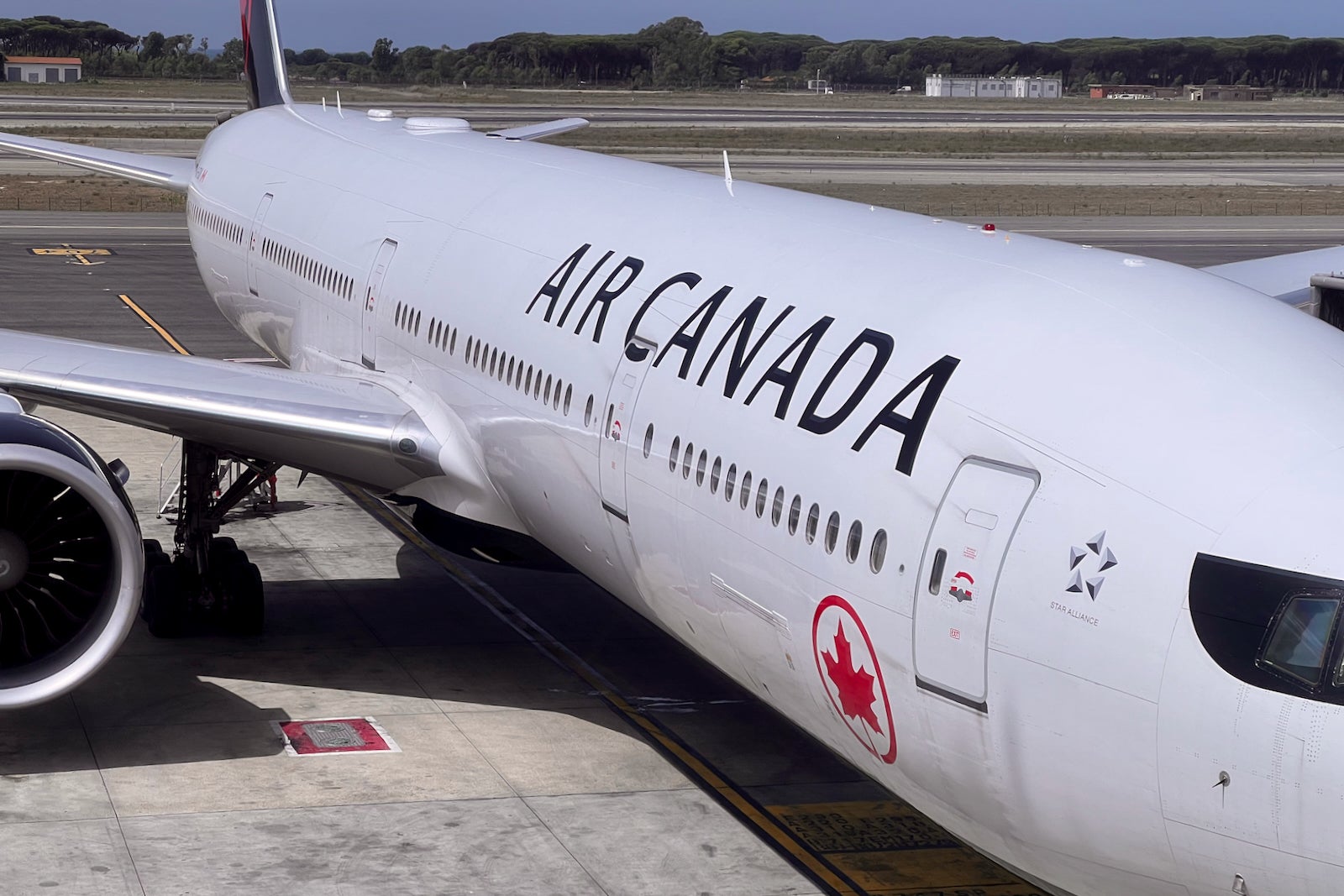
We’ve written a lot about the Aeroplan stopover.
For 5,000 points, you can add a stopover to any one-way ticket and up to two stopovers to a round-trip ticket (for 5,000 points apiece). You can also have an open jaw on your ticket, but only between one-way flights — not between connecting cities or stopovers.
In addition to Air Canada metal, you can use the Aeroplan stopover option on Star Alliance partners like United, Lufthansa and ANA. The Aeroplan stopover also works with nonalliance partners like Emirates, Gulf Air and Oman Air. You can book plenty of creative flights between Aeroplan’s partners.
Here are some of our favorite Aeroplan stopovers in business class:
- Stopover in Japan: Los Angeles International Airport (LAX) to Tokyo’s Narita International Airport (NRT) to Singapore Changi Airport (SIN) for 90,000 points.
- Stopover in Switzerland: Miami International Airport (MIA) to Zurich Airport (ZRH) to Naples International Airport (NAP) for 75,000 points.
- Stopover in Turkey: Dulles International Airport (IAD) to Istanbul Airport (IST) to Ngurah Rai International Airport (DPS) for 92,500 points.
Remember that stopovers are not allowed for trips entirely within North America, including the U.S., Canada, Mexico, the Caribbean and Central America.
You can book Aeroplan stopovers using the multicity search function on aircanada.com.
Related: Complete guide to Aeroplan’s stopover and routing rules
Air France-KLM Flying Blue
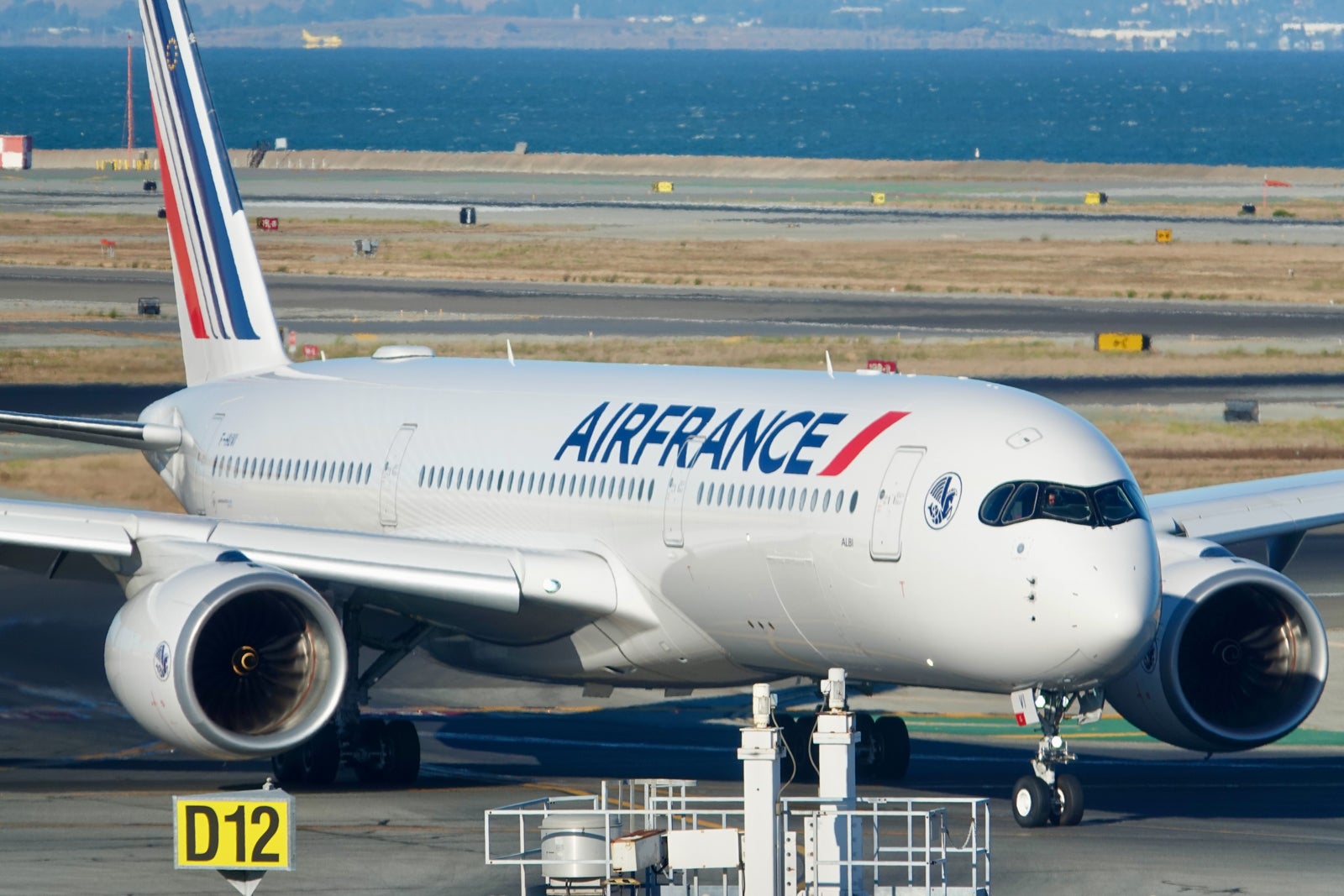
Flying Blue is one of the most recent programs to start offering stopovers. Best of all, stopovers with Flying Blue don’t require extra miles.
On Flying Blue award tickets wholly operated by Air France and/or KLM, you can add a stopover for up to one year. For most travelers, this means stopping in Paris or Amsterdam for a few days before continuing to your final destination.
To book Flying Blue stopovers, you’ll need to call Flying Blue at 1 (800) 375-8723.
Related: The ultimate guide to earning and redeeming with Air France-KLM Flying Blue
Alaska Airlines Mileage Plan
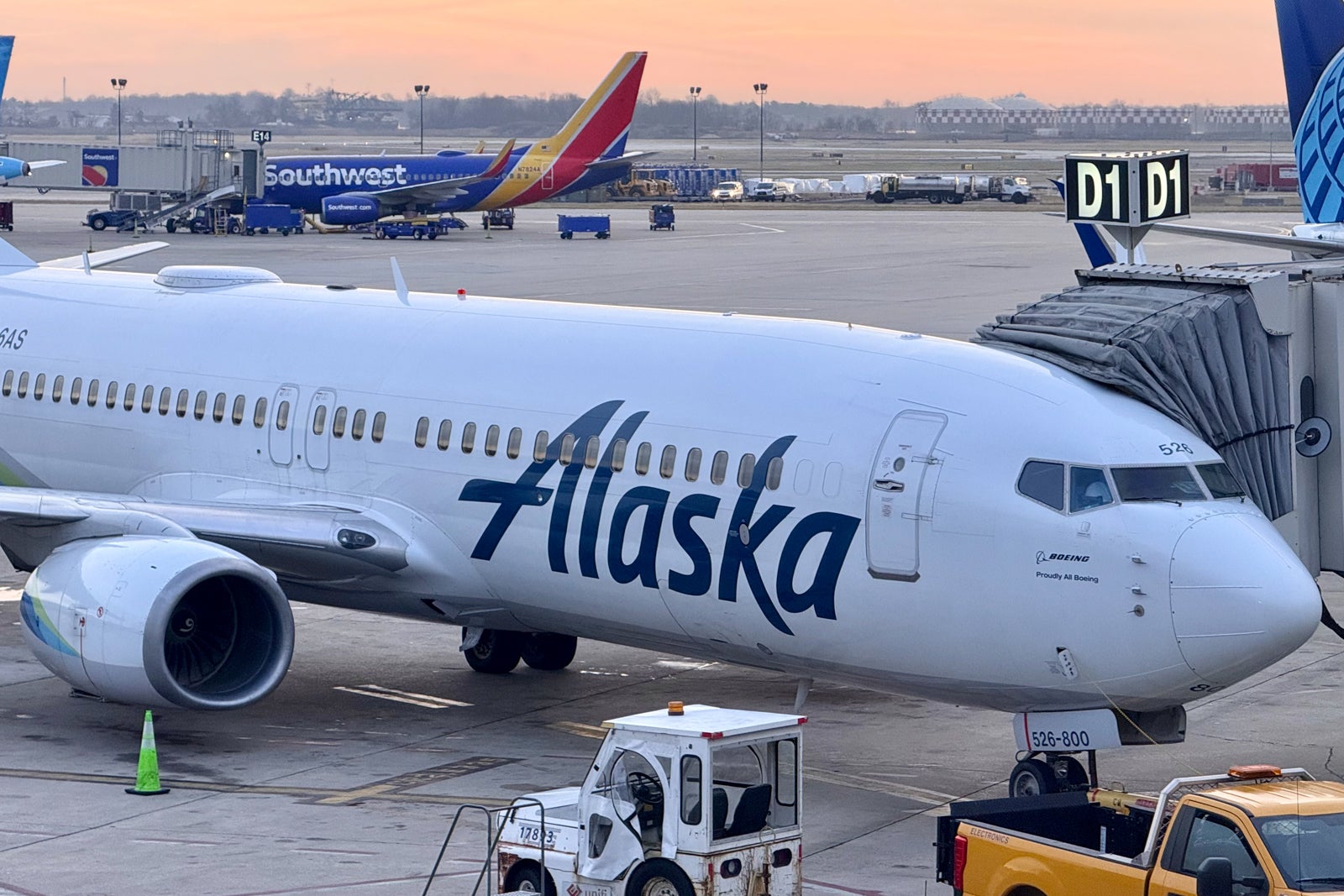
Alaska Airlines Mileage Plan offers attractive premium cabin award rates, particularly for travel to Asia. It also provides generous rules for stopovers and open jaws.
You can have one stopover per one-way flight and use an open jaw for international award tickets. However, when using the Alaska stopover, you can only use one partner airline per award ticket, plus Alaska. To avoid this restriction, you can book two one-way tickets on round-trip itineraries and use different partners on the outbound and inbound flights.
Generally, Alaska stopovers are only allowed on long-haul international flights in the hub of your partner airline. This would be Hong Kong International Airport (HKG) for Cathay Pacific. Meanwhile, Japan Airlines would allow stopovers in either Tokyo airport — Narita International Airport (NRT) or Haneda Airport (HND).
You can book Alaska Airlines’ stopovers using the multicity search on alaskaair.com.
Singapore Airlines KrisFlyer
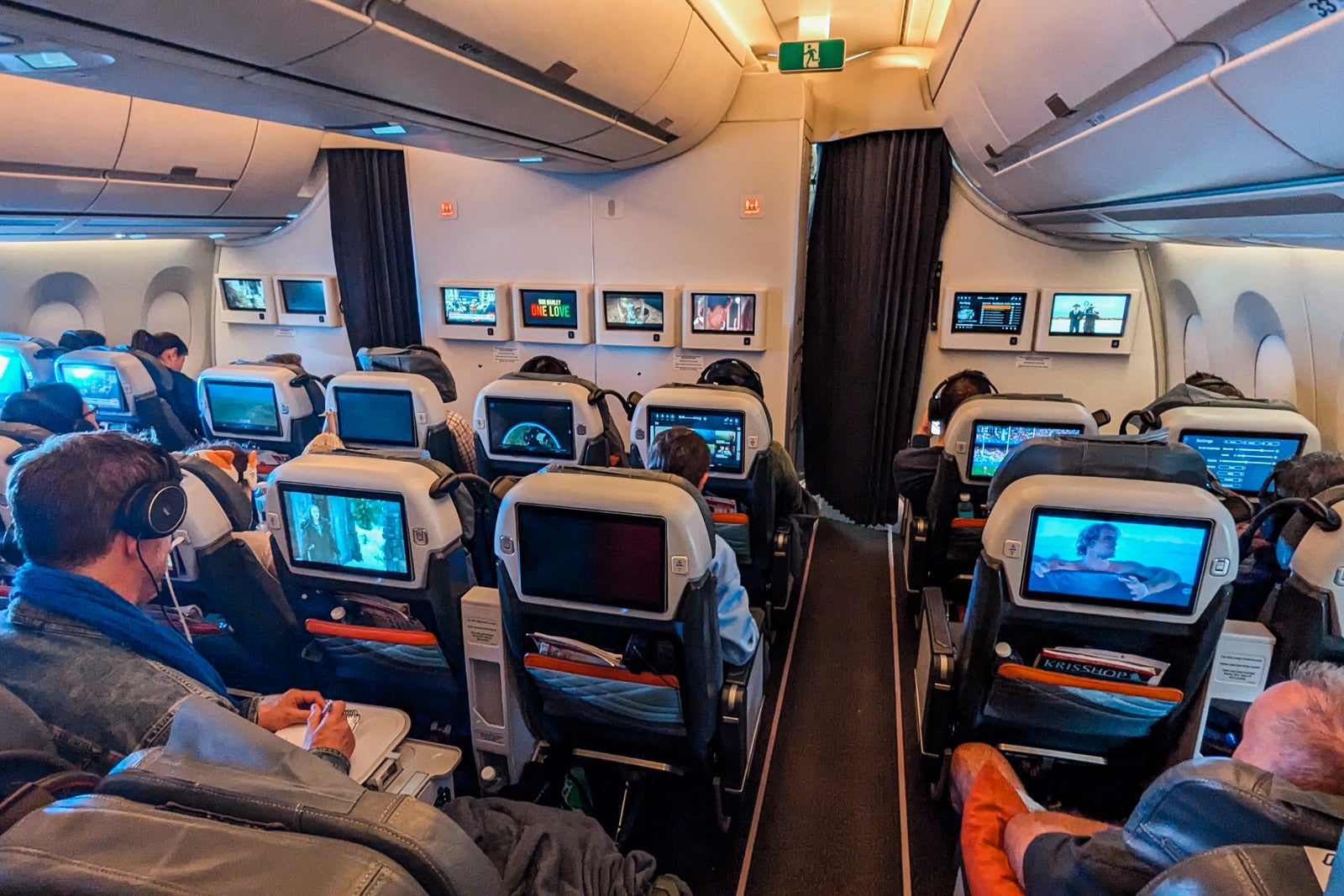
Singapore Airlines continues to offer exceptional premium-class products. On Singapore Airlines-operated award tickets, KrisFlyer members can book stopovers and open jaws on award tickets. One-way Advantage awards allow for one stopover, while round-trip Advantage awards permit two. Saver awards only allow one stopover on a round-trip ticket and none on a one-way ticket.
In all of these cases, adding stopovers to an award ticket booked through Singapore KrisFlyer is free of charge.
For U.S.-based flyers, the best use of the KrisFlyer stopover may be on fifth freedom Singapore Airlines flights, where you can stop for a few days in a city before terminating your journey in Singapore. Singapore Airlines operates these U.S. fifth freedom flights:
- LAX to NRT
- Houston’s George Bush Intercontinental Airport (IAH) to Manchester Airport (MAN) (ending April 1, 2025)
- JFK to Frankfurt Airport (FRA)
To book KrisFlyer stopovers, go the Singapore Airlines website and select “redeem flights.” Enter your travel criteria with your origin and final destination — for example, LAX to SIN. You’ll see a place to add a stopover on the next page.
United MileagePlus
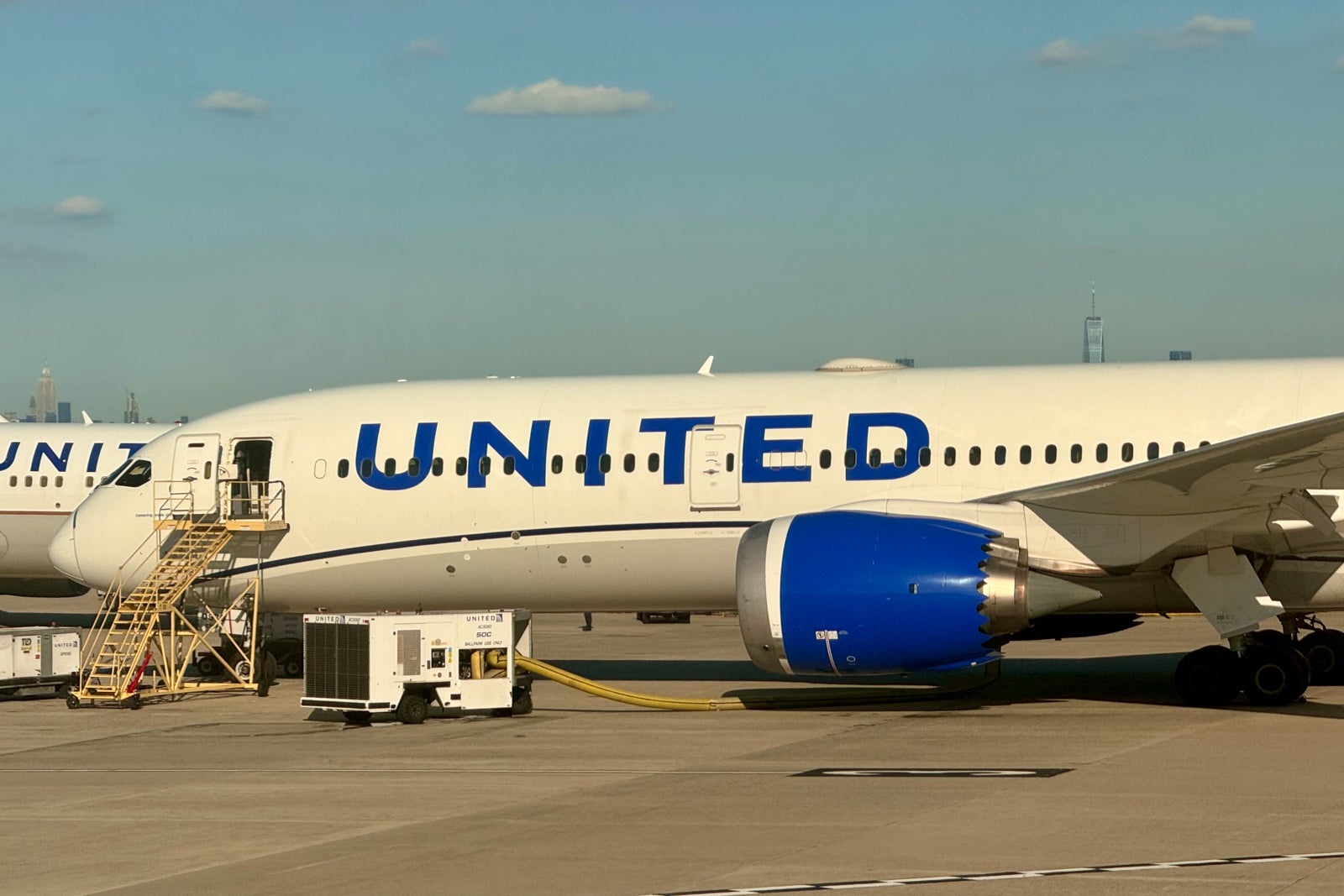
United MileagePlus doesn’t explicitly permit stopovers or open jaws but offers the Excursionist Perk. This benefit allows you to book a free one-way award ticket when traveling on a multicity itinerary, which includes three or more one-way awards. Plus, your trip has to meet the following criteria, per United’s website:
- Your trip has to start and end in the same region.
- The Excursionist Perk flight has to start and end in the same region.
- Your trip must start in a different region than the free Excursionist Perk flight.
- Your Excursionist Perk flight must be in a lower award tier or cabin than your previous flight before it.
You can use this to create several stopovers and/or open jaws, and there’s room to get very creative here, given how few rules United has about the perk. However, the most common use would be something like this:
- Flight one: Newark to Frankfurt on United or Lufthansa
- Flight two: Frankfurt to Brussels on Lufthansa or Brussels Airlines
- Flight three: Brussels to Newark on United
To book the MileagePlus Excursionist Perk, go to United’s website, click “advanced search,” “miles,” and then “multicity.” Enter your travel details. The first sector wholly within a single MileagePlus-defined region different from the region where your itinerary begins and ends costs no extra miles.
How to maximize stopovers and open jaws
Now that you know how to make the most of stopovers and open jaws on award tickets, here are a few extra tips to consider while planning your next trip:
- Consider a connection of just less than 24 hours. When traveling internationally, you can generally connect within 24 hours of your arrival without it counting as a stopover. If you can schedule an overnight layover close to 24 hours, you can add another city to your itinerary without using up your stopover.
- Add a “free” side trip. If you plan to use your miles for a trip, consider adding a free side trip with a stopover and/or open jaw. For example, say you want to vacation in Canada but also have a wedding to attend in New York around the same time. Instead of booking two separate trips from your home airport, you can fly from your home to New York (stop for a wedding) and then continue to Montreal-Pierre Elliott Trudeau International Airport (YUL). After a week of vacation, you can return to your home airport from Montreal.
- Diversify your rewards. Diversification is the key to having more options when booking award tickets and filling in open jaws. Transferable point currencies are excellent for this. You can wait to transfer points until you know your redemption needs, giving you greater flexibility.
Bottom line
Adding stopovers and open jaws to your award tickets is an excellent way to maximize your rewards and potentially visit another city without incurring additional award expenses.
You can even leverage some program restrictions, such as Alaska Airlines, to have a stopover in the partner’s hub city. Now, you have the skills to begin utilizing stopovers on your next award trip.



